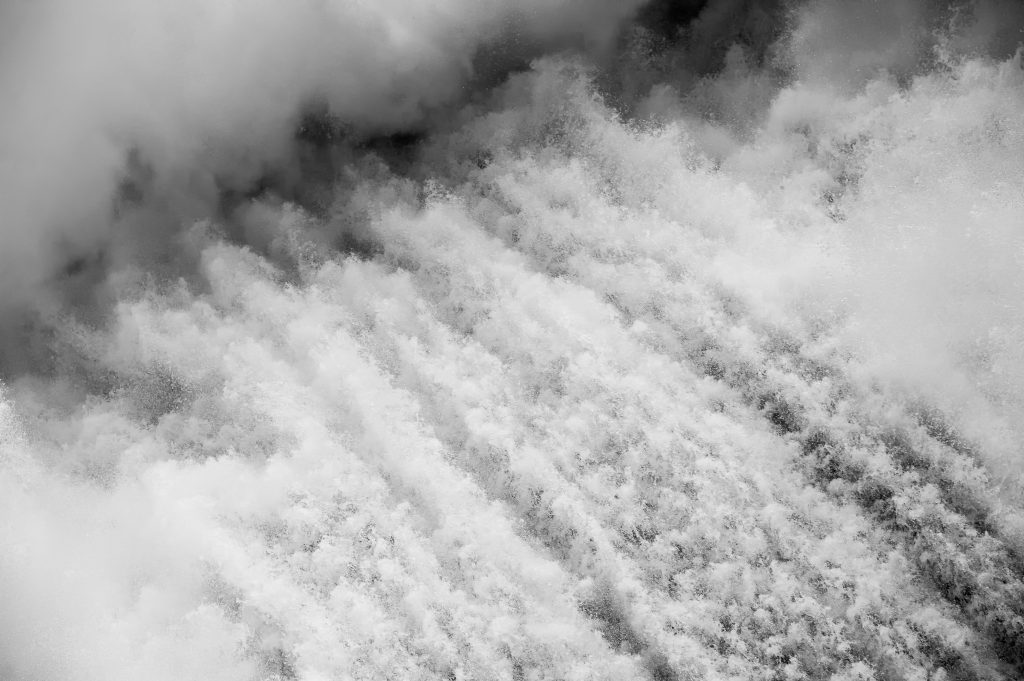By Lynne Fernandez

In October 2019 the provincial government announced that former Saskatchewan Premier Brad Wall would take over as commissioner of an inquiry into Manitoba Hydro’s Bipole III transmission and converter station project, and Keeyask Generating Station. The cost of the inquiry was reported at $2.5 million. Wall took over from former BC Premier Gord Campbell who stepped down after only five months, for which he billed Manitoba tax payers almost $600,000.
This will be the second expensive consultant report they’ve commissioned the regarding Hydro. They are hide-bound to find fault with the Public Utility Board (PUB) which approved the Keeyask project after extensive public hearings and expert testimony.
The timing of the Wall report will conveniently correspond to the tabling of Bill 44, (The Public Utilities Ratepayer Protection and Regulatory Reform Act) which eviscerates the PUB’s authority, diminishes the public’s role in decision making and accommodates large increases in hydro rates.
The secretive nature of this inquiry is in stark contrast to the Manitoba tradition of holding public inquiries. For example, another Hydro inquiry conducted in the 1970s resulted in the Tritschler Report. This inquiry was transparent and public, as are all the hearings that the PUB conducts into Manitoba Hydro’s activities.
In contrast, the public will never know who said what during the Wall inquiry, or if the report rendered by the commissioner is an accurate representation of what was said. There is nothing preventing the report from downplaying testimony that contradicts the tone of the Terms of Reference which is clearly to find fault with the PUB and the previous NDP government.
Why attack the PUB? The root of the Pallister government’s ire is the debt Manitoba Hydro took on to build the Keeyask dam – debt that was known at the time of the PUB review, and accepted by the panel when the dam was approved. Since taking office in 2016 and changing the Hydro board, they have argued adamantly to significantly increase hydro rates in order to pay that debt down. Their appeals have failed, with the PUB ruling in favour of those intervenors who argued for lower increases.
Bill 44 will bring in a transitional period ending March 31, 2024, during which time the provincial Cabinet can increase hydro rates to any level. Public input will not be sought, and rates could be increased as much as 7.5%/year, as per Hydro’s 2017 proposal, rejected by the PUB. Such an increase would fly in the face of the PUB’s expectation of a 3.95% increase to pay for the capital expenditures. Once actual construction costs, historically low interest rates and the new firm export revenues are considered, the required rate increases will be closer to 3.5%.
Given that Keeyask is poised to become operational, worries about Hydro’s ability to service its debt remain unfounded, especially in light of the new firm power export contracts with SaskPower.
A reliable source advises that these contracts with SaskPower and other utilities in the US will use much of the surplus firm power available from Keeyask and the inter-connection to the US for almost the next two decades, and will more than make up for the loss of revenue from the cancellation of the Energy East Pipeline pumping station. They also lock in a lucrative revenue stream, reducing Hydro’s exposure to uncertain spot market prices.
The test of Manitoba Hydro’s preferred development plan approved by the PUB should be taken once Keeyask is up and running. Mr. Wall also needs to consider that in an uncertain world facing climate change, Keeyask and the new interconnections provide significant additional energy security benefits regardless of whether the electricity generated by Keeyask is exported or not. Case in point: last October’s massive snow storm decimated the southern Manitoban transmission grid, an event Hydro could not have anticipated or planned for.
Every day brings a new story about the collapse of fossil fuels. Manitoba’s ability to take advantage of this sea change and the need to integrate energy systems with our neighbours did not happen because of luck. It happened because of the expertise, vision and dedication of Manitoba Hydro staff and board, whose development plans were rigorously tested by the PUB and a variety of outside experts.
We hope that Mr. Wall can see beyond his pro-coal, pro-oil sands bias and recognize the new world Manitoba Hydro must operate in – one that is increasingly carbon-restrained, inclusive of First Nations, facing historically low interest rates, and aggressively switching to renewable energy sources.
Should Mr. Wall’s report simply provide support for Bill 44, should Manitoba Hydro start being carved up and privatized – a process that could start under Bill 44, we will lose a tremendous public asset, and we will no longer enjoy the lowest hydro rates in North America.
Lynne Fernandez holds the Errol Black Chair in Labour Issues at the Canadian Centre for Policy Alternatives, MB. Her new report: Manitoba Hydro Facing Uncertain Future is available HERE


